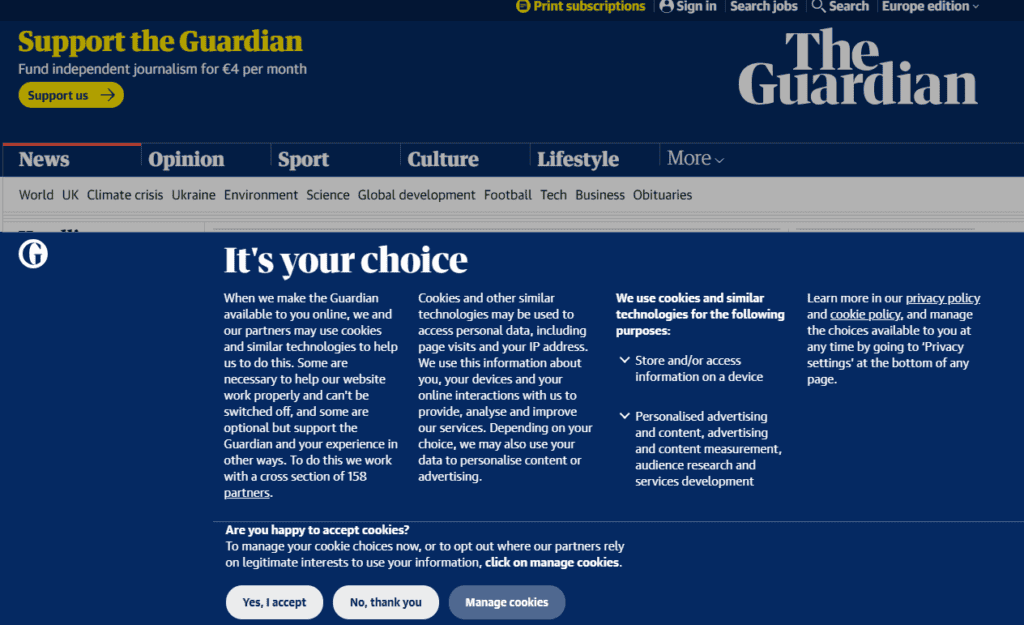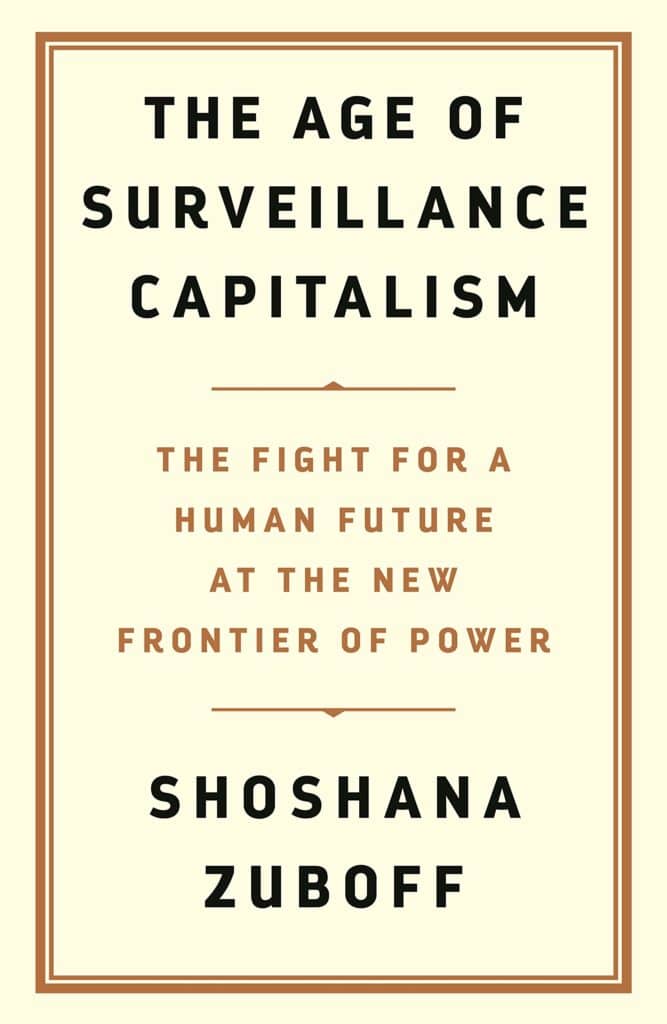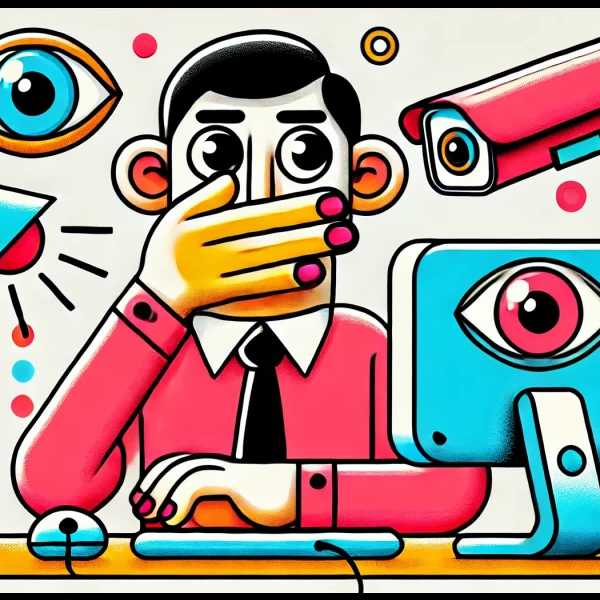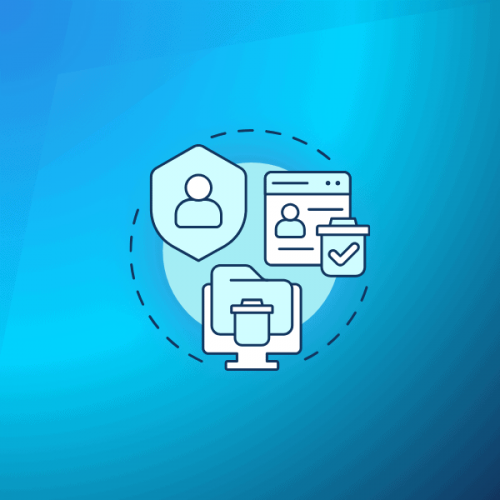Online privacy is a term that has become ubiquitous in 2025. But do you know what it really means?
And more importantly, do you know what is at stake with weakened online privacy?
In this guide, we explore everything you need to know about online privacy, why it matters, how to preserve it and much more. Let’s explore.
What is Online Privacy?
Online privacy is a term that gets thrown around a lot, to the point where it loses its meaning. So let’s define what online privacy, is and what it isn’t.
There are many definitions one can give for “online privacy”, but here is the most common one:
Online privacy refers to the level of protection and security of a user’s personal and sensitive information while connected to the internet.

Online privacy therefore covers several different aspects:
- what personal data are you sharing;
- how this data is collected;
- how it is used;
- with who else is the data shared afterward?
Since Edward Snowden revealed the extent of the US government’s surveillance program, online privacy has become ubiquitous. Depending on which “side” you listen to, online privacy is either dangerous or a human right.
Here at Mailfence, we firmly believe that online privacy is a fundamental right and a building block for freedom of speech. In our opinion, online privacy is not about hiding things. It’s about selectively choosing what you reveal to the world.
Imagine you just met someone for the first time. Would you start sharing your every life detail with them?
Probably not. You would first want to learn more about them. Make sure you can trust them. Then slowly over time start sharing details and information about yourself. The same should go for your online presence.
Why You Should Care About Your Online Privacy
It’s no secret that online privacy has steadily eroded over the last 20 years.
We live today in the age of surveillance capitalism: personal data is now just a commodity collected and commercialized on a massive scale by corporations.

For those of us who continue to pursue increased online privacy, the same arguments always come up:
- your online privacy is the price to pay to prevent terrorism;
- we need to monitor all online communications to protect our children;
- if you have nothing to hide, what’s the problem?
In our opinion, all of these arguments miss the mark
Privacy is a human right
Privacy is a fundamental, basic human right. No one should be able to force you to share personal information. Why do you send letters in sealed envelopes? Why do we close our curtains at night, and close the door when we go the the bathroom? Or lower our voice when talking about something private with a friend?
All these examples show that we value privacy on some level. Privacy in the “offline world” seems obvious. But when it comes to the online world, privacy seems like a step too far for some people.
The main reason for this is that the online world is much more opaque than the physical world. Trackers are hidden, processes are obfuscated.
Which is more invasive- a man following you in the street, writing down every single place you visit? Or a website cookie?
Most people will probably answer with the first proposition. However, cookies and trackers will collect much more data on you than any single human could.

Privacy and democracies
For democracies to function properly, there must be discussion and opposition brought by political parties, journalists, civic groups, etc.
More importantly, government misdeeds can only be exposed if whistleblowers, journalists, and activists can investigate and take action without being surveilled, intimidated, or pressured.
Any person, organization, or government with access to our personal data acquires the power to manipulate, intimidate, or blackmail us. This fundamentally undermines and weakens our democratic institutions.
Giving up our privacy, whether online or offline, is not irrelevant. It equates to giving up the freedoms on which democracy depends. Anybody in favour of strong democracies should therefore be an advocate for online privacy.
Government vs Individual: Who’s Job Is It to Protect Online Privacy?
It was recently revealed that China plans to give all of its citizens a score to encourage “good behavior” by grading people’s online data usage.
Those with so-called “bad behavior” will be denied privileges such as access to loans, university, or travel.
This piece of news went largely unnoticed in the West. Perhaps because we believe that this kind of citizen control is only possible in autocratic regimes. Most people believe this could never happen in our liberal democracies.
But there are numerous proofs of regimes falling to the dark side of privacy. It took less than a year for Putin to take control of the Russian media and four years to dismantle its electoral system. In Turkey, Erdogan did the same job in even less time. In Poland and Hungary, constitutional democracy is being undone as we speak.
Europe has had a schizophrenic approach to online privacy. On the one hand, it enacted GDPR, one of the best data protection regulations in the world. On the other, it continuously tries to banish end-to-end encryption.
So while we should applaud regulations and laws safeguarding our privacy, we should not expect the government to protect us. It is up to us to opt for tools that do not harvest our data
Weak Online Privacy: Here’s What You’re Risking
Most people, unwillingly or not, do not give sufficient attention to their online privacy. Here are just some of the risks they run by doing so.
Identity Theft
One of the most immediate and damaging risks of weak online privacy is identity theft. Cybercriminals can exploit personal information such as social security numbers, addresses, and birth dates to impersonate individuals. This can lead to fraudulent activities, including opening credit accounts, making unauthorized purchases, and committing other forms of financial fraud.
Surveillance capitalism
As discussed previously, weak online privacy contributes to the rise of surveillance capitalism. Companies now collect and monetize personal data, which should be a growing concern. This practice undermines user autonomy and can lead to manipulative advertising and invasive tracking. Against your knowledge, you are being sold products and services that you don’t need. Worse, you can be sold products at a higher price than if you weren’t being tracked.
Weaker democracies
Additionally, government surveillance programs, if left unchecked, can erode civil liberties and lead to a surveillance state, where individuals’ every move is monitored and recorded.
When individuals know that their online activities are being monitored, they self-censor.

They avoid discussing controversial topics. The fear of being watched can stifle political dissent and reduce the diversity of opinions expressed online. Journalists, activists, and whistleblowers are particularly vulnerable, as surveillance can expose their sources and hamper their ability to report on sensitive issues.
7 Tips to Protect Your Online Privacy Today!
If you’ve made it this far, congratulations! It means you recognize the value of online privacy, and are ready to take the next steps.
Here are 7 of our best tips to improve your online privacy today.
#1: Encrypt your communications
Encryption can be a scary word. However, in 2025, it is surprisingly easy to encrypt your communications. Whether when texting or emailing, encryption ensures no one outside the sender and receiver can read the contents. If possible, opt for end-to-end encryption solutions.
If you want to start sending encrypted emails, the easiest is to set up your free Mailfence account.
To learn more about encryption, check our following guides here:
- End-to-end Encryption: How Does It Work?
- Symmetric Encryption: The Easiest Way to Send an Encrypted Email
- Symmetric vs Asymetric Encryption: What’s the Difference?
#2: Know the options
Before buying an Internet-connected device, downloading an app, or signing up for an online account, look at the information asked for.
Then, determine if you are comfortable handing over this information.
Online privacy is not a black or white issue. It’s a spectrum, where each person will draw the line at a different point. Pay special attention to free applications or services: check their privacy policies to ensure your data isn’t being wildly harvested.
#3: Use a privacy-preserving browser
A browser is the first place you go to to connect to the Internet. So it makes sense to choose it wisly.
Firstly, avoid using Chrome and Google – i.e. the godfathers of surveillance capitalism.
If you use Firefox, make sure to install privacy-preserving extensions such Privacy Badger, Cookie Autodelete and uBlock. You can also opt for privacy-first browsers such as Brave.

Another solution is to use a secure VPN dedicated to anonymity (meaning which doesn’t record your traffic).
#4: Do some spring cleaning
It is not always possible to protect your privacy online by restricting the data collected on connected devices, applications, or online services.
That’s why it’s important to regularly review the services you use daily and ruthlessly eliminate those you no longer use.
Because even if they are no longer of any use to you, they continue to silently collect a lot of data about you. Don’t forget mobile apps and browser extensions. Often, these applications or extensions will offer you to deactivate them, not delete them. But be firm: even when disabled, most of them will continue to siphon off your data. Everything must go!
#5: Protect your devices
Finally, to protect your privacy online, you also need to protect your devices. This includes some of the following recommendations:
- Physically protect your devices from prying eyes. Use a monitor filter to hide your screen if you are required to use your device in public or on public transport.
- Avoid using public Wi-Fi connection. Use your mobile network connection instead, or a VPN whenever it’s unavailable.
- Only use strong and unique passwords.
- Use a firewall and an antivirus on all your connected devices.
- Update your software and hardware when you’re notified of the availability of an update to benefit from the most recent protection and security patches. Choose a tech stack that will include only licensed and secure products from the original distributor.
- Use two-factor authentication (2FA) wherever possible.
- Travelling soon ? Don’t let your guard down during your trips. Read our Tips To Protect Your Devices When Travelling and protect your privacy even on the move.
#6: Spread the word
If you value online privacy, share this article and spread the word. Start debates with your friends and family, and try to sensitize them to the issue. Tell them your concerns about online privacy and start a public discourse about privacy and its importance.
#7: Support privacy non-profit organizations
Here at Mailfence, we support the fight for digital rights and donate part of our revenue to support the Electronic Frontier Foundation and the European Digital Rights Foundation. They both advocate for privacy through legislation, policy analysis, and privacy-enhancing technologies. We urge you to do the same.
The Future of Online Privacy
In the old world, government surveillance was a complicated and costly business. Total surveillance was impossible.
Today, Internet data can be scanned for keywords, on a vast scale, without detection.
For all the reasons we laid out, it is crucial to reclaim your online privacy. Here at Mailfence, we put privacy before profits:
- No tracking, no advertising. We do not use any third-party advertising or marketing trackers. We do not track your activity in the application. Mailfence is completely free from ads. We do not send spam or solicitations. We will never commercialize our databases or share data with any third party for targeted advertising or any other purpose.
- Strict privacy laws. In many countries, government-sponsored programs collect massive amounts of data from the Internet. This data collection is done without any search warrant, court order, or subpoena. Mailfence’s servers are based in Belgium, with strong laws protecting privacy. Only a valid Belgian court order can force us to release data. Since we have no foreign parent company, we never comply with any rogue or other data requests from either domestic or foreign authorities. We are not liable to US gag orders or NSLs.
- No VC money. Mailfence is 100% self-funded and lives through the subscriptions of our users. No venture capital, no pressure on fast returns. An established company with a spotless 20-year track record.
Check out our full suite of tools including emails, calendars, cloud storage, contacts and more.
Why Online Privacy Matters? FAQ
Online privacy refers to protecting your personal and sensitive data while using the internet. It is essential because weak privacy exposes you to risks like identity theft, tracking, manipulative advertising, and even threats to democratic freedoms.
Weak privacy can lead to identity theft, where cybercriminals exploit your personal data, and surveillance capitalism, where companies monetize your online behavior. It also results in self-censorship and undermines freedom of speech by discouraging open discussions.
To enhance your privacy, encrypt your communications, use privacy-focused browsers like Brave, avoid public Wi-Fi without a VPN, and regularly review and delete unused apps and services. Strong, unique passwords and enabling two-factor authentication are also crucial
Mailfence ensures privacy through end-to-end encryption, strict no-tracking policies, and compliance with strong Belgian privacy laws. It does not mine data or show ads and operates independently without external funding, prioritizing user trust and security



